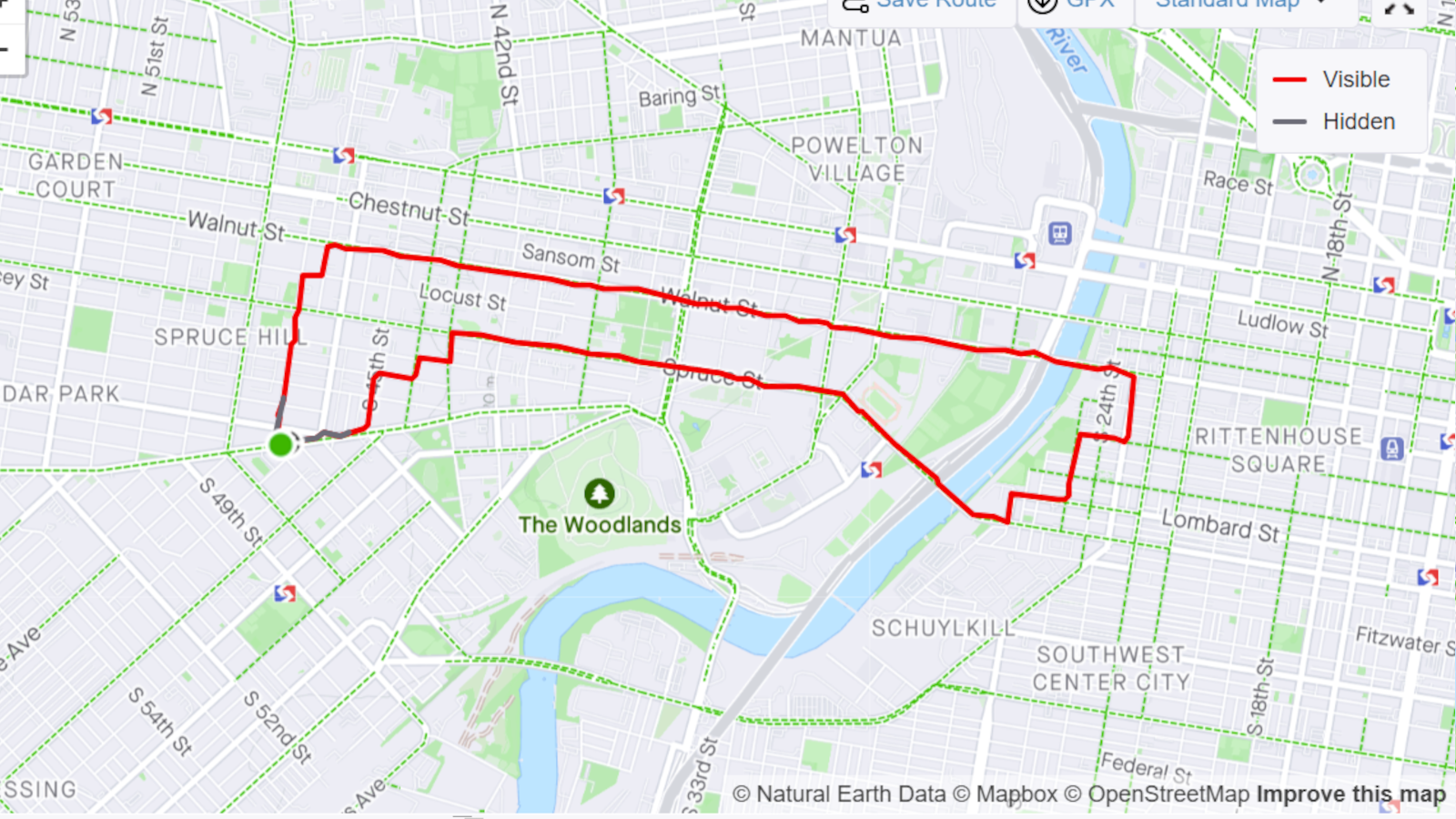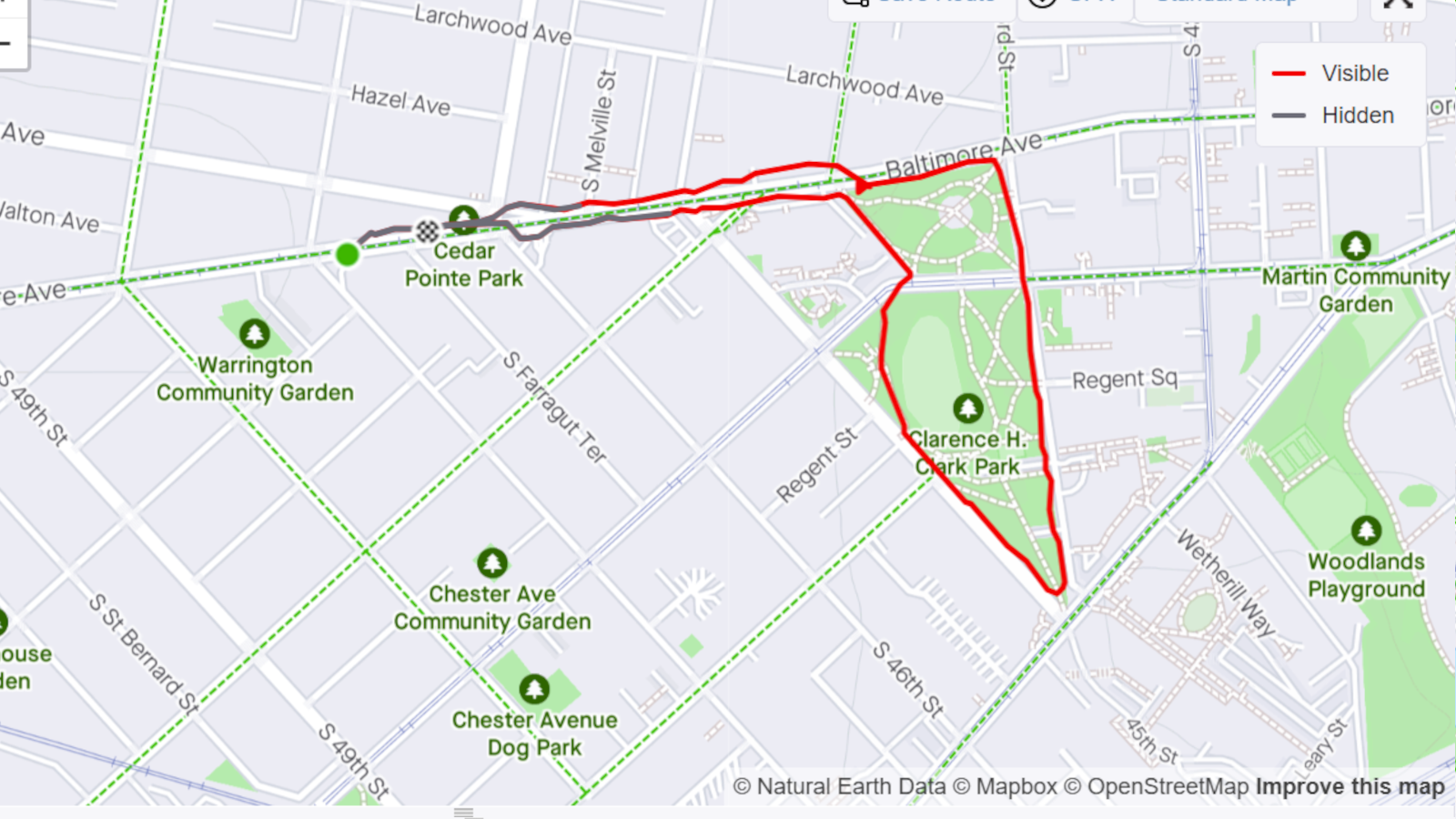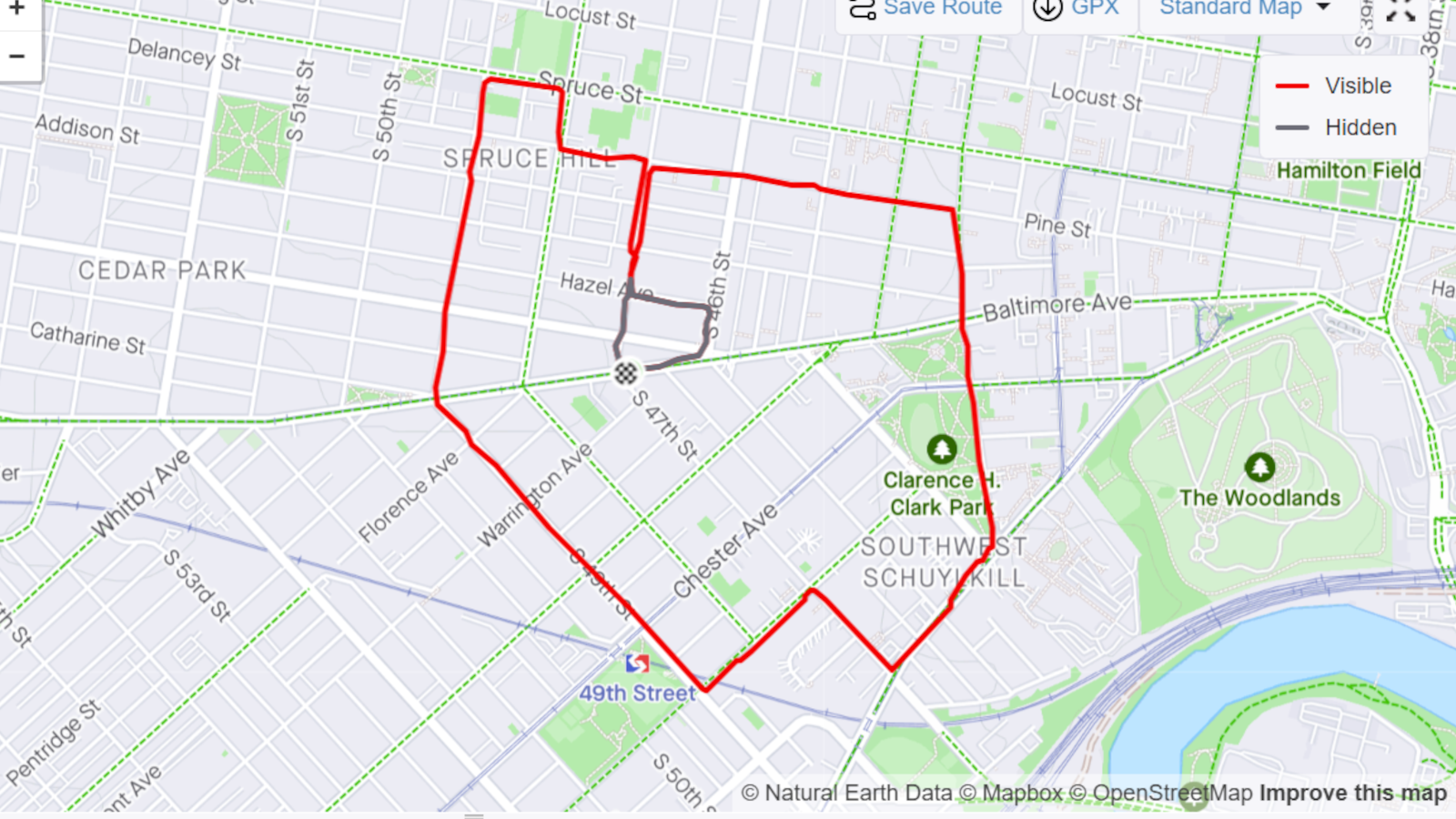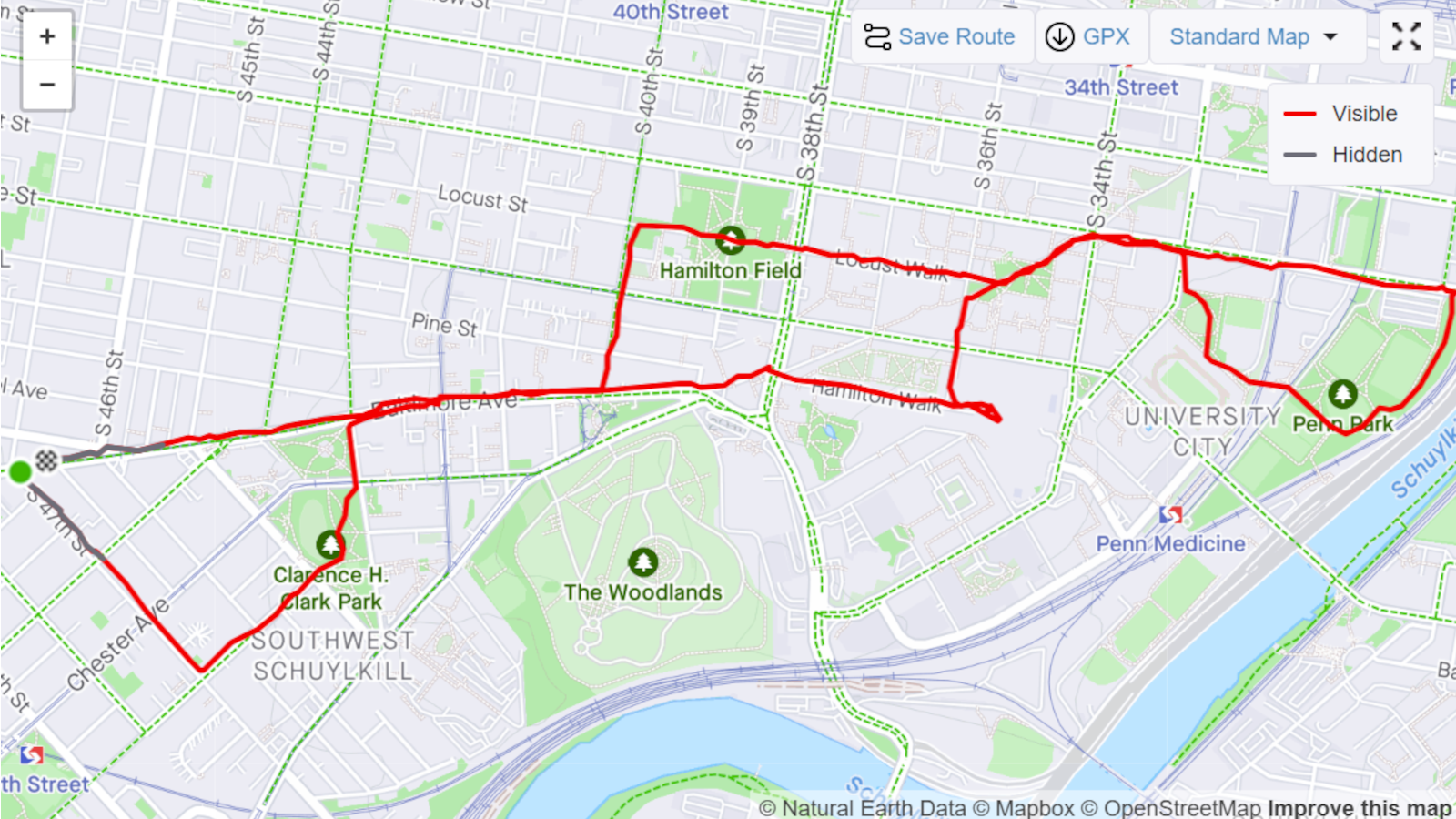
For the last decade, I've considered myself a serious athlete. I raced bikes for the entirety of my teenage years, I've conquered a marathon, and I've made a habit out of trying to mountain bike 100 miles once per year. I try to get as many running and cycling miles in per week as I can, but one variable has made scheduling my training difficult: a full-time job.
When I worked in an office, I struggled to find the time to get a quality workout in while the sun was still up. Luckily, I now work remotely, and I don't have to navigate the same decorum and time constraints that an office environment demands of me. In other words, I run during the workday now, and it has made me far happier at work.
Nothing beats a runner's high for building motivation, and I've found that getting that workout in mid-day improves my energy, adds a natural break to the day, and helps me build toward my athletic goals without sacrificing any of my evening.
How much running is the right amount, though? How far? How intense? To demonstrate the system I've found works for me, I tracked a week of workouts (and rest days) to show how I balance work and workouts.
Monday: Long run

- Distance: 5.25 miles
- Time: 41:54
- Pace: 7:58/mi
- Intensity: Medium (Zone 2-3)
Before I say anything else, I should clarify that 5 miles isn't what a lot of runners would consider a "long" run. Admittedly, if I spent the same amount of time on my bike instead of on foot, I'd say this was hardly a workout. But the challenge that comes with fitting this kind of distance into a lunch break (in which I still want to shower and eat) is considerable. It's also worth mentioning again that I've been an athlete for a decade, so this baseline is a lot more familiar for me than I would expect it to be for someone who's just getting into it. Don't rip your legs off trying to achieve a distance you saw someone on the internet (me!) doing with relative ease.
For this run, my goal wasn't distance but rather time. Like I said, my current long-term running goal is to knock out a 5k in less than 20 minutes, and I want to train my heart and lungs to keep chugging along for that duration or longer. As such, I've made it a goal to knock out at least one run per week that's double the duration.
Throughout this run, I was keeping my pace steady., nose breathing whenever possible. If getting consistent training throughout the week is a priority for you, I wouldn't recommend pushing your pace any harder than that when you're aiming for longer distance or time.
Running a blisteringly fast 10k may feel cathartic in the moment, and I certainly could have fit one in on this day, but you're going to be feeling it the next day. And I wanted to get a shorter, faster run in the next day without Monday's miles bogging me down.
After this long-ish run, my energy levels were ideal for the rest of the day, which was a treat. I spent much of this day knocking out content for our Cyber Monday coverage, which warrants a bit more focus and speed.
Tuesday: A quick speedwork session

- Distance: 1.23 miles
- Time: 9:31
- Pace: 7:44/mi (6:02/mi fastest pace)
- Intensity: High (Zone 3-4)
Sometimes, I try to squeeze my workouts into times in my workday when I know I'm not going to get any meaningful work done. On this day, I had two meetings that were 30 minutes apart from each other, so I decided to go for a short run in between.
The next critical component of training for a personal best time, aside from endurance training, is speedwork. Just as it's important to train your body to run for a certain duration, it's important to condition your body to tolerate running at your target pace. No need to mix the two together until race day, but you can't hold a 6:25 mile pace for 3 miles if you can't hold it for one.
For my super fast runs, I like to do hot laps around the park that's a few blocks from my apartment in West Philly. It's a quick half-mile loop that gets my heart rate pretty high, and I like to knock at least one lap of it out whenever I have the freshness in my legs to do so. This week, I'm recovering from a Turkey Trot that I took far too seriously, so I only had the bandwidth for one lap. Once I'm approaching race day, my goal is to get at least four or five in without dipping in pace.
After this run and a shower, I hopped right into my second meeting. I felt a lot more awake for the next hour or so, but that energy dipped a lot sooner than it did the day before.
Wednesday: Easier miles

- Distance: 3.11 miles
- Time: 24:49
- Pace: 7:58/mi
- Intensity: Low/medium (Zone 2)
One of the biggest misconceptions new runners have regarding training load is how often you need to run hard. The reality: not often at all.
You'll benefit a lot more from running a high volume of easy miles than you will from running a small handful of blood-boiling sprints around your block. And before anyone asks, high volumes of high-intensity training simply aren't feasible. Not for you, not for me, not for world record-breaking marathoner Eliud Kipchoge. It's a great way to burn yourself out in a couple of weeks.
Especially after a day of running with a lot more gusto, I knew I wanted to keep my pace relaxed. I didn't let myself run fast enough to stop nose-breathing at any point throughout this run, and I gave myself the grace to walk a bit of the second mile. "Nobody has a stopwatch but me," I always try to tell myself.
This run was an especially nice treat for today because it was the first day of the week I spent entirely at home. Normally, I spend half my day at one of the cafes in my neighborhood, but Wednesdays are often meeting-laden enough that it doesn't make sense for me to leave. Getting this dopamine boost and some brief exposure to fresh air helped me feel astronomically more motivated.
Thursday: On the fourth day, I rested
- Distance: N/A
- Time: N/A
- Pace: N/A
- Intensity: N/A
Did you know that you're allowed to take a sick day when you're in the middle of a training plan? For the longest time, I refused to let myself believe it. When I was training for the New York Marathon last year, I didn't let myself take a single day off. Two weeks before the race, I collapsed on my last long run with almost 4 miles left to run. I called an Uber to bring me home, and I spent the entire run-up to race day worrying that I wouldn't make the distance. All of that could have been avoided if I had listened to my body sooner.
On Thursday, I woke up feeling truly terrible. I'm sure it was just some errant germ I picked up while I was home for the holidays that did me in. Whatever it was, it knocked me for a loop. I took the day off from work, stayed in bed, and granted myself a few blissful hours of afternoon sleep.
Recovery is more important than a lot of novice athletes may realize. Recovery days are the days your body spends repairing your muscles after you put them through the wringer for multiple days straight. If you never take any kind of recovery day, you can actually expect your fitness to decline as your body struggles to adequately rest. Teenage bike racer Adam learned that the hard way. I'd like to say it's the reason I'm not racing in Europe right now, but I think there were plenty of other reasons why that was never going to happen.
At the end of this day, I felt far better than I had when I woke up. If I just toughed it through this day and worked/ran, my misery would have only carried through to the next day and cost me another opportunity to move my legs.
Friday: Cautiously optimistic long run

- Distance: 4.63 miles
- Time: 38:36
- Pace: 8:20/mi
- Intensity: Low (Zone 1-2)
It's seldom a good idea to come back from a day off like a bat out of hell. That said, I wanted some miles today because I was feeling sluggish when I woke up. As a compromise, I knocked out a few easy miles on the Penn's campus that involved lots of stopping to figure out where I was. Natural breaks, I call them.
This pace was my slowest yet for the week, but I like to remind myself that running at this kind of pace is still better for me than not running at all. We can't demand perfection from ourselves, especially in a context as unpredictable as athletics. I was just happy to spend another day outside while the sun was shining. Yes, it was also frigid out, but that problem solves itself for me within the first mile on a typical cold day.
I could have gone longer today, as evidenced by my noticeably high energy when I got back to my front door, but I ultimately felt that this was the best balance between working and working out. I have plenty of writing to get done today (including this very article!), so I didn't want to lose too much of it and wind up working late on a Friday. Yuck.
Overall reflections
Running during the day isn't novel to me. When I was training for a marathon, it was the only way I could get the ridiculous training volume that I needed to sail under 4 hours for my finishing time. That said, I did most of that training while working at the office of... a running magazine. In other words, it was pretty much my job to run. Now, I have a lot more priorities to navigate. Avoiding staying indoors all day is certainly one of them. To that end, I feel like I have accomplished a noble goal this past week.
In an ideal world, I'd be knocking these runs out in the evening (or, if I'm feeling really type-A, before work). But finding ways to engineer natural breaks in the workday can be paramount for some people as they navigate long hours alone at home. If I weren't running, I would be filling my lunch break with some other enriching activity for sure. That said, once the sun stops setting right at the end of the workday, I'll go back to running and cycling in the evenings in hopes of getting some bigger miles in.
At the end of the day, I appreciate that remote work has given me the freedom to use my time like this. I'm spending my time far more fruitfully than I would be commuting in my car.
Tips for fitting a run into your lunch break
Know your route: if time is of the essence, you likely don't have any to waste getting lost. Even on a short neighborhood run, it's not impossible to wind up on an unfamiliar block and find yourself completely lost. If I want to try a new run, I either wait for a day when I don't have meetings or try the route out on Sunday.
Gather your gear beforehand: I made the mistake of ignoring this plenty of times when I first started running regularly. Having your clothes and shoes somewhere easy to grab can stop you from digging around for them during the day and losing valuable time. I like to keep mine on the futon next to my desk.
Leave time for recovery: Regardless of how lax your team is, it's just plain gross to log onto a conference call dripping with sweat while gorging on a bowl of yogurt. If you're trying to fit your run within a proper lunch hour, make sure to figure in ample time to rinse off and make yourself something to eat. I give myself 20 minutes, but if you shower quickly and have food prepped, you can manage with less.







